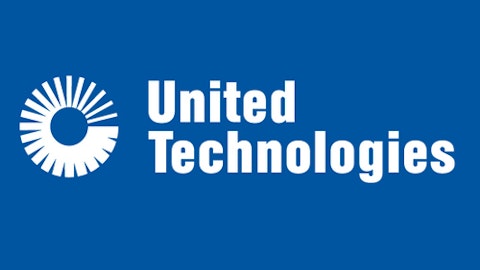Which major industrial firms should one purchase to earn capital gains and dividends over the next three to five years. One way to find out is to look at the recent histories of companies and believe that the same will hold true over the long term. Using the CAPS Community stock screener, I narrowed the choices down to four manufacturing giants.
The criteria were as follows: Return on Equity (TTM) > 10%, Current Dividend Yield % >2.0, Market Capitalization: Large Cap (Above $10 billion), EPS Growth Rate (last 3 Yrs) > 5%, and Beta (3 year) < 1.50. The LT Debt-to-Equity Ratio and CAPS Rating were included for reference.
| Symbol | Company Name | LT Debt-to-Equity Ratio | Return on Equity (TTM) | Current Dividend Yield % | Market Capitalization | EPS Growth Rate (last 3 Yrs) | Beta (3 year) | CAPS Rating |
|---|---|---|---|---|---|---|---|---|
| GE | General Electric Co | 1.89 | 11.60% | 3.30 | $239.8 bill. | 11.7% | 1.32 | 4 |
| HON | Honeywell International, Inc. | 0.43 | 22.90% | 2.10 | $62.4 bill. | 10.3% | 1.39 | 5 |
| ITW | Illinois Tool Works Inc | 0.44 | 26.60% | 2.20 | $31.2 bill. | 30.8% | 1.24 | 5 |
| UTX | United Technologies Corp | 0.82 | 24.60% | 2.30 | $85.4 bill. | 6.9% | 1.16 | 4 |
The statistics above tell us that the four conglomerates have been consistently growing earnings and earning a high return on capital while distributing above-average dividends. A discussion of each firm’s characteristics is henceforth:
General Electric’s finance division is an overall positive
GE Capital is General Electric Company (NYSE:GE)‘s largest profit contributing division and its income has been growing year over year as the real estate market bounces back. The downside to GE Capital is that it carries a sizable debt balance, lifting General Electric Company (NYSE:GE)’s Debt-to-Equity Ratio.
Otherwise, General Electric Company (NYSE:GE) is poised to post improved performance over the next year and beyond. Its energy-related units are struggling to gain headway currently, but investments ought to support gains. Meantime, General Electric Company (NYSE:GE)’s aviation (jet engines) and Transportation (mostly locomotives) units are faring well. It also operates a healthcare segment that should thrive over the long run.
In all, General Electric Company (NYSE:GE) is resourceful and has the capability to seize opportunities. Its diversification is a positive aspect. The shares should provide investors with healthy returns over the long-term. Notably, General Electric Company (NYSE:GE) offers the highest dividend yield in the group.
Honeywell’s productivity is on the rise
Honeywell International Inc. (NYSE:HON), a $62 billion industrial giant, operates in four segments: Aerospace, Automation and Control Solutions, Performance Materials and Technologies, and Transportation Systems. It is generating profit growth in its three largest segments, largely by way of productivity and transformation initiatives.
Its defense contracting business has seen some weakness related to government budget cuts. However, commercial parts sales have remained steady, thanks to an improved environment. Another growing piece of Honeywell International Inc. (NYSE:HON)’s business has been its Energy, Safety, and Security product line.
Essentially, investors in Honeywell International Inc. (NYSE:HON) own a company that earns a high return on equity, and has been growing earnings more-than 10% annually, without leveraging the balance sheet. The shares are a good long-term holding.
Strong returns on equity and earnings growth trends
The company among these four registering the fastest rates of ROE and EPS expansion is Illinois Tool Works Inc. (NYSE:ITW). Last year, all of its segments posted income gains, with the exception of Construction Products. Furthermore, the repurchase of common shares has allowed for share-net accretion at a rapid clip. Like Honeywell International Inc. (NYSE:HON), too, it boasts a low debt-to-equity ratio, despite the buybacks.
I recommend Illinois Tool Works Inc. (NYSE:ITW) shares for those seeking consistently increasing profits and an overall quality conglomerate manufacturing company.
Commercial building and aerospace
I have blogged about United Technologies Corporation (NYSE:UTX) before, most recently with the posting “United Technologies and Aircraft Purchases.” The premise of that article, that investments in its commercial aircraft product offerings, particularly through the buyout of Goodrich, will support top and bottom-line growth in the near-term, remains intact.
Meantime, its elevator, HVAC, and security product categories may also benefit the bottom line over the coming years, as a commercial/non-residential construction market upturn might well occur to a greater extent, as the residential market continues to make strides.
United Technologies Corporation (NYSE:UTX) shares are a Dow component, like GE, and they should fare well over the long-term. The stock yields about 2.30%, offers a return on equity of 24.6%, and is relatively low beta for an industrial at 1.16, meaning it will likely not exhibit much volatility.
Wrapping it all up
For purposes of comparison, I will close with a rundown of the market valuations and price-to-equity valuations of each stock in the group. The best choice of the four as a portfolio addition for the long-term, in my view, is United Technologies Corporation (NYSE:UTX). They are all worthwhile holdings for most investors.
| Symbol | Company Name | Price | Market Cap. | 2013 EPS est. | P/E |
|---|---|---|---|---|---|
| GE | General Electric Co | 23.19 | 239.79B | 1.66 | 12.7 |
| HON | Honeywell International, Inc. | 79.34 | 62.42B | 4.95 | 14.4 |
| ITW | Illinois Tool Works Inc | 69.17 | 31.16B | 4.23 | 14.9 |
| UTX | United Technologies Corp | 92.94 | 85.44B | 6.11 | 13.4 |
The article The 4 Best Large-Cap Industrials to Own originally appeared on Fool.com and is written by Damon Churchwell.
Damon Churchwell has no position in any stocks mentioned. The Motley Fool recommends Illinois Tool Works. The Motley Fool owns shares of General Electric Company. Damon is a member of The Motley Fool Blog Network — entries represent the personal opinion of the blogger and are not formally edited.
Copyright © 1995 – 2013 The Motley Fool, LLC. All rights reserved. The Motley Fool has a disclosure policy.




